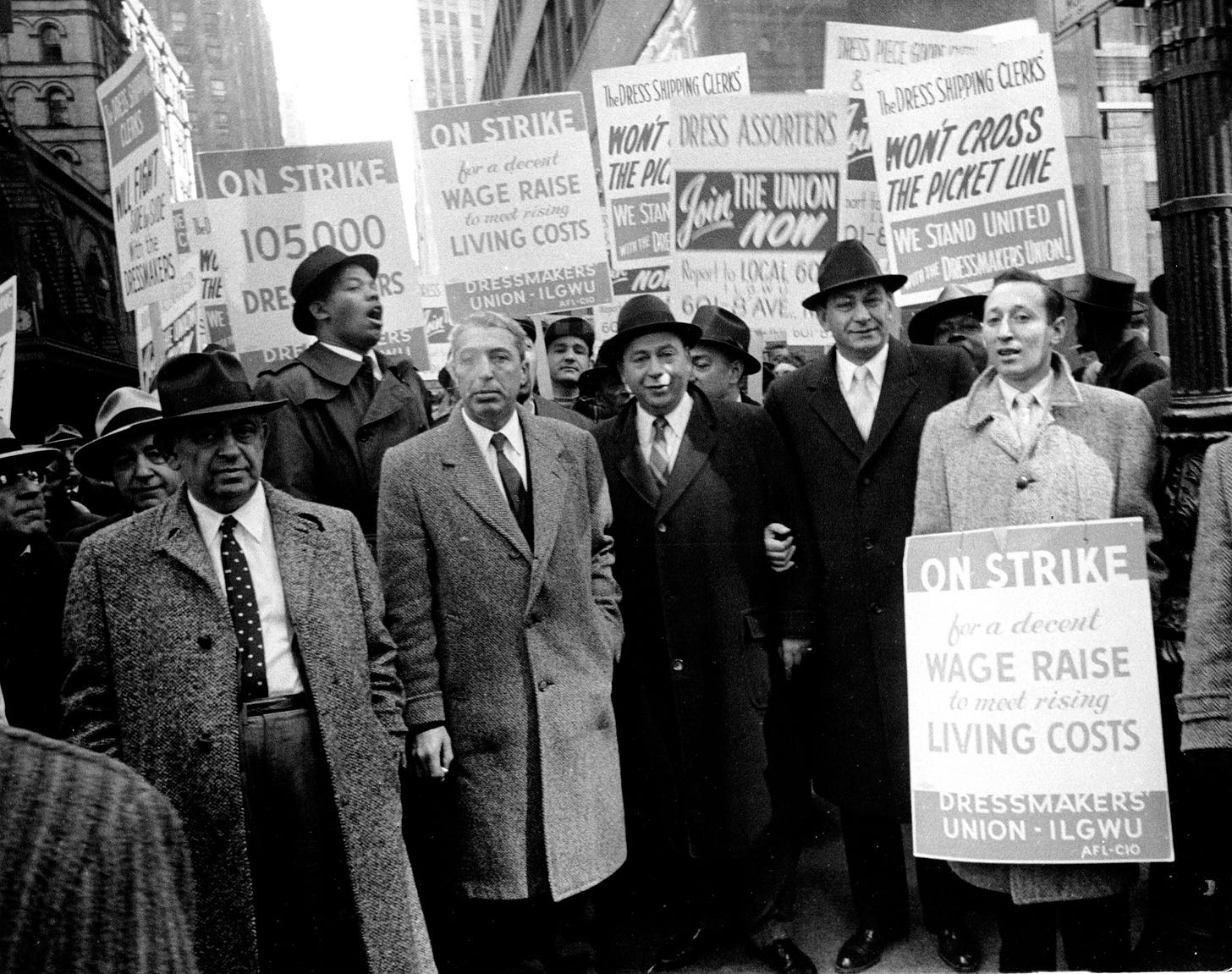The freedom to associate through unions is essential to the labor movement
Most Americans are losing out on pay and benefits as a result of increasingly hostile laws and by employers following the letter, but not the spirit, of laws allowing workers to unionize.

This Monday, we celebrated Labor Day, a holiday adopted in 1894 to celebrate the contributions of workers to the health, strength and prosperity of the United States.
And we should celebrate our labor force. It is skilled and industrious, ranking sixth-most productive among all nations. Moreover, beyond creating profit and value for businesses, workers have driven innovations in quality of life, among them:
The 8-hour work day
Child labor laws
The Family and Medical Leave Act, guaranteeing sick and parental leave
Health and safety laws that prevent many thousands of injuries and deaths
Many of these changes have been brought about through the strength and organizing power of unions.
The freedom to associate and negotiate through unions has been essential to the labor movement. Over the years, this freedom has been threatened by increasingly hostile laws and by employers following the letter, but not the spirit, of laws allowing workers to unionize. Most Americans are losing out on pay and benefits as a result.
Non-managerial workers, the same people whose incredible productivity enables businesses to thrive, have faced flat or decreasing wages for the past 40 years. Income inequality is at its highest level since just before the Great Depression. According to University of Iowa professor Colin Gordon, this stagnation for both unionized and non-unionized workers can be linked to the decline of unions.
Recent changes to the laws have consolidated power in the hands of the already powerful. Locally, Iowa once had a well-balanced law regarding the freedom of workers to deal fairly with their bosses. No more. Now public sector unions must spend significant time and energy on the recertification process, not on advocating for their members. Nationwide, more and more states have passed laws making it harder to unionize and easier to freeload. These laws let some workers reap union benefits without paying union dues, resulting in reduced benefits and lower wages for both union and non-union workers.
Laws directly targeting labor unions are not the only culprits. Our once-strong antitrust laws have been methodically weakened over the past decades, allowing monopolies and near-monopolies to rise again and control entire industries, from news to food to search. These national companies are able to take drastic steps to prevent their workers from forming unions. For instance, the nation’s largest private-sector employer, Walmart, has been known to close whole stores and eliminate departments across stores to avoid unionization. This isn’t something a mom-and-pop store, or even a local chain, can do.
Meanwhile, white collar workers lack a culture of unionization. Non-managerial covered employees could gain a range of benefits from collective bargaining, from better wages to protection from arbitrary firings to that vanishing benefit, the pension. But unionization among employees of technology companies, professional firms, newsrooms and other white collar jobs is virtually unheard of. Unionization seems to be linked in the minds of the American public with specific, blue-collar positions and has therefore helped fewer workers than it could have. This is no accident. Ask yourself who benefits when it doesn’t even occur to you to explore your legal rights.
Workers are increasingly being cut out of the profits they create for their employers and have fewer and fewer options to address it. What is to be done?
Consider forming or joining a union. Professions from computer programmers to administrative assistants to fast food workers may be eligible. It’s election time; vote for those on the side of workers. Support labor-oriented non-profits like TeamCAN and resources like the University of Iowa Labor Center.
UI President Bruce Harreld recently announced his decision to close the Labor Center. The Labor Center has long been a unique resource for educating and assisting Iowa’s workers and unions. Consider attending the upcoming public hearing on the UI Labor Center at 7 p.m. on Monday, Sept. 10 at Old Brick and declaring your support for Iowa workers.
Kelcey Patrick-Ferree and Shannon Patrick live in Iowa.
Originally published in the Iowa City Press-Citizen on September 5, 2018.

